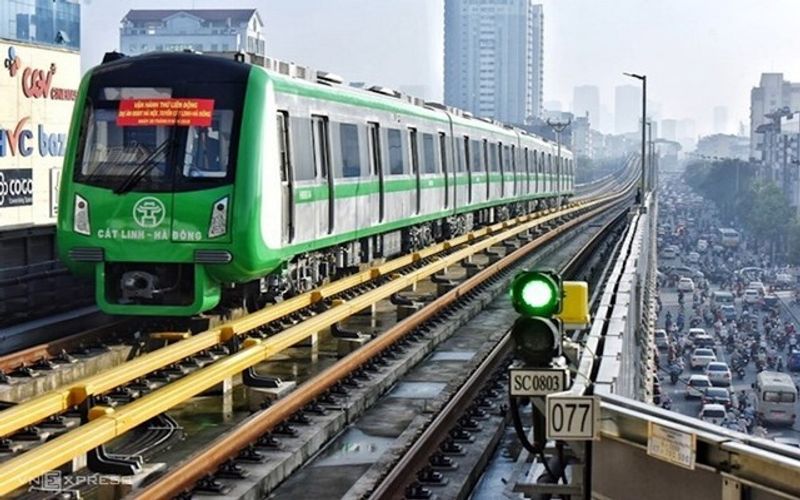Nắm vững bộ “Transport Vocabulary IELTS” sẽ giúp bạn tự tin hơn khi phải thảo luận về chủ đề này trong bài thi IELTS. Nhận biết được điều đó, Edmicro đã xây dựng list 30+ từ vựng thông dụng chủ đề Transport. Mời bạn đọc cùng theo dõi ngay nhé!
Từ vựng IELTS chủ đề Transport
Transport là chủ đề có khối lượng từ vựng nhiều và rộng. Vì vậy, để dễ theo dõi, học tập và ghi nhớ các bạn nên phân loại từ vựng chủ đề này thành nhiều nhóm nhỏ. Ví dụ
Từ vựng chỉ các loại phương tiện giao thông và đường xá
| Overpass | Cầu vượt |
| Traffic jam | Tắc đường |
| Van | Xe bán tải |
| Lorry | Xe tải |
| Truck | Xe tải |
| Scooter | Xe ga |
| Motorcycle = motorbike | Xe máy |
| Bus | Xe buýt |
| Coach | Xe khách |
| Minibus | Xe buýt nhỏ |
| Bike = bicycle | Xe đạp |
| Truck | Xe tải |
| Pedestrian (n) | Người đi bộ |
| Crosswalk (n) | Đường dành cho người đi bộ |
| Highway (n) | Đường cao tốc |
| Platform | Ga tàu |
| Conductor | Người kiểm soát vé tàu |
| Railway station | Nhà ga |
| Cruise | Du thuyền |
| Sailboat | Thuyền buồm |
| Captain | Thuyền trường |
| Harbor | Cảng biển |
| Passenger | Hành khách |
| Pilot | Phi công |
| Speed limit (n) | Giới hạn tốc độ |
| Traffic light (n) | Đèn giao thông |
| Roundabout (n) | Vòng xuyến |
| Lane (n) | Làn đường |
| Turn signal (n) | Đèn xi nhan |
| Roadside | Lề đường |
| Turning | Chỗ rẽ, ngã rẽ |
| Toll | Lệ phí qua đường hay qua cầu |
| Toll road | Đường có thu lệ phí |
| Motorway | Xa lộ |
| One-way street | Đường một chiều |
| T-junction | Ngã ba |
| Roundabout | Bùng binh |
| Petrol station | Trạm bơm xăng |
| Road sign | Biển chỉ đường |
| Pedestrian crossing | Vạch sang đường |
| Breathalyser | Dụng cụ kiểm tra độ cồn trong hơi thở |
| Traffic warden | Nhân viên kiểm soát việc đỗ xe |
| Parking space | Chỗ đỗ xe |
| Multi-storey car park | Bãi đỗ xe nhiều tầng |
| Underground | Tàu điện ngầm |
| Checkpoint | Cửa khẩu, trạm kiểm soát |
| Bottleneck | Đường hẹp |
Từ vựng về hành động khi tham gia giao thông
- To brake: phanh (động từ)
- To accelerate: tăng tốc
- To slow down: chậm lại
- Petrol bump: bơm xăng
- Car wash: rửa xe ô tô
- To run a red light: vượt đèn đỏ
- Speeding: việc chạy xe quá tốc độ cho phép
- Reckless driving: lái xe cẩu thả
- Drink-driving: lái xe khi say rượu
- Hit-and-run: tông vào người khác rồi bỏ chạy
- Sounding/beeping your horn: Bóp cò xe
- Driving without a helmet: lái xe không đội nón bảo hiểm

Từ vựng về khác
- Emission: Khí thải
- Noise pollution: Ô nhiễm tiếng ồn
- Environmental-friendly
- Travel abroad/ Go abroad/To be abroad: Đi du lịch/Ra nước ngoài
- Business trip: Chuyến công tác
- Commute: Di chuyển hàng ngày từ nhà đến nơi làm việc
- Space travel: Du hành vũ trụ
- Autonomous vehicle = driverless car= self-driving car: Xe tự lái
- High-speed rail: Đường sắt cao tốc
- Speeding fine: Khoản tiền phạt vì quá tốc độ
- Carpooling: Dịch vụ đi chung xe
- Road fatalities: Tai nạn giao thông dẫn đến tử vong
- Depot: Trạm dừng, điểm tập kết kho chứa
Xem thêm: Travel Vocabulary IELTS: Bộ 20+ Từ Vựng Ăn Điểm Topic Travel
Các cụm từ ăn điểm chủ đề Transport (Collocations, Phrasal Verb và Idioms)
| To slow down | Chậm lại |
| Commit traffic violations | Vi phạm luật giao thông |
| Heavy goods vehicle | Phương tiện chở hàng hóa cồng kềnh |
| Means of transport | Phương tiện giao thông |
| Traffic congestion | Ách tắc giao thông |
| Traffic safety | An toàn giao thông |
| Rush hour | Giờ cao điểm giao thông |
| Jam-packed | Chật ních, tắc nghẽn |
| Get stuck in the traffic | Bị kẹt xe |
| Hit the road | Lên đường, khởi hành |
| Hitch a lift/ride | Quá giang |
| To run a car | Sở hữu và lái xe |
| Bumper to bumper | Kẹt xe phải nhích từng tí một |
| Backseat driver | Người ngồi sau, luôn đưa các lời khuyên, nhắc nhở quá nhiều cho tài xế |
| Beat the traffic | Tránh giờ cao điểm |
Câu trả lời mẫu trong Speaking
Để giúp các bạn dễ áp dụng các từ vựng đã nêu ở trên vào bài thi SPeaking, chúng mình sẽ đưa ra một số câu trả lời mẫu dưới đây nhé:
Part 1
What form of transport do you prefer to use? Why?
Without any doubt, I would say motorbikes. You can see people driving motorbikes all over the place in my country. Almost everyone travels by motorbike. The reason why a motorbike is so popular is due to their reasonable price and convenience. They are also extremely varied in terms of size, color and quality, thus a wide variety of choices is available for everyone.
How often do you take buses?
Almost every day. Since my house is so far away from my university, it’s impossible for me to travel by motorbike. In addition, the air is heavily polluted by exhaust fumes and traffic jams always take place, especially during peak hours. Thus, I’d prefer to take the bus, to save time, save gasoline and cause less pollution.
Do you prefer public transport or private transport?
I believe I’d choose public transportation. It is far less expensive, and because it can hold a lot of people, it lessens the severity of traffic congestion during peak hours and lowers greenhouse gas emissions from moving automobiles. The price of gasoline, fees, and other costs are higher when using private transportation.
Một số câu hỏi Part 1 khác:
Can you compare the advantages of planes and trains?
How much time do you spend traveling on a normal day?
Would you ride bikes to work in the future?
What will become the most popular means of transport in your country?

Part 2
- Describe an accident you saw.
You should say:
- Where the accident occurred
- Where you were then
- How the accident affected you
and give detailed information about the accident.
- Describe a time when you missed a bus/ train/ aeroplane.
You should say:
- when it happened
- where you were supposed to go
- how you missed it
and explain what you did after you missed it.
- Describe a time you travelled by public transport.
You should say:
- what type of public transport you used
- where you travelled from and to
- what you did during the journey
- and explain how you felt about travelling in this way
Trên đây là bài viết về bộ từ vựng chủ đề Transport mà Edmicro đã tổng hợp và sưu tầm được. Hy vọng bạn có thể lưu lại bộ “Transport Vocabulary IELTS” và áp dụng vào luyện tập thật hiệu quả nhé!
XEM THÊM










